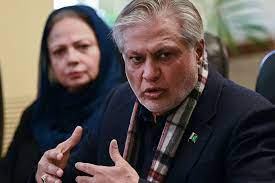
Pakistan economic crisis: Tax hikes may surge inflation
Pakistan has been struggling with a huge economic crisis after its forex reserve has fallen down. Inflation is likely to get accelerated in Pakistan as the country will impose new taxes of 170 billion rupees this month in a bid for massive bailout, according to The Associated Press.
This comes after the International Monetary Fund delayed the release of a crucial $1.1 billion portion of a 2019 deal worth $6 billion, on hold since December over Pakistan’s failure to meet the terms. The latest round of the talks between Pakistan and the IMF concluded Friday with the fund recommending steps including imposing new taxes.
Ehtisham-ul-Haq, a veteran economist said, “The imposition of more taxes means tough days are ahead for the majority of the people in Pakistan who are already facing higher food and energy costs, but there is no other way out if Pakistan needs the IMF loans, and Pakistan desperately needs it.”\
In Pakistan, the country’s inflation is at a 48-year high. Foreign currency reserves cover less than a month of imports. The Consumer Price Index index increased by 27.6% in January 2023. Wholesale Price Index has increased to 28.5% in the same period.
Officials say several friendly countries like China, Saudi Arabia, and the United Arab Emirates had assured Sharif’s government that they will financially help Islamabad — but they too wanted Pakistan to complete the 2019 IMF program.
Sharif’s predecessor, Imran Khan, now the opposition leader since his ouster through April’s no-confidence in Parliament, has been warning that Pakistan could face a Sri Lanka-like situation because of the deepening economic crisis. He has publicly warned that Pakistan could be blackmailed by the world community over the country’s nuclear program if Pakistan defaults in the near future.

